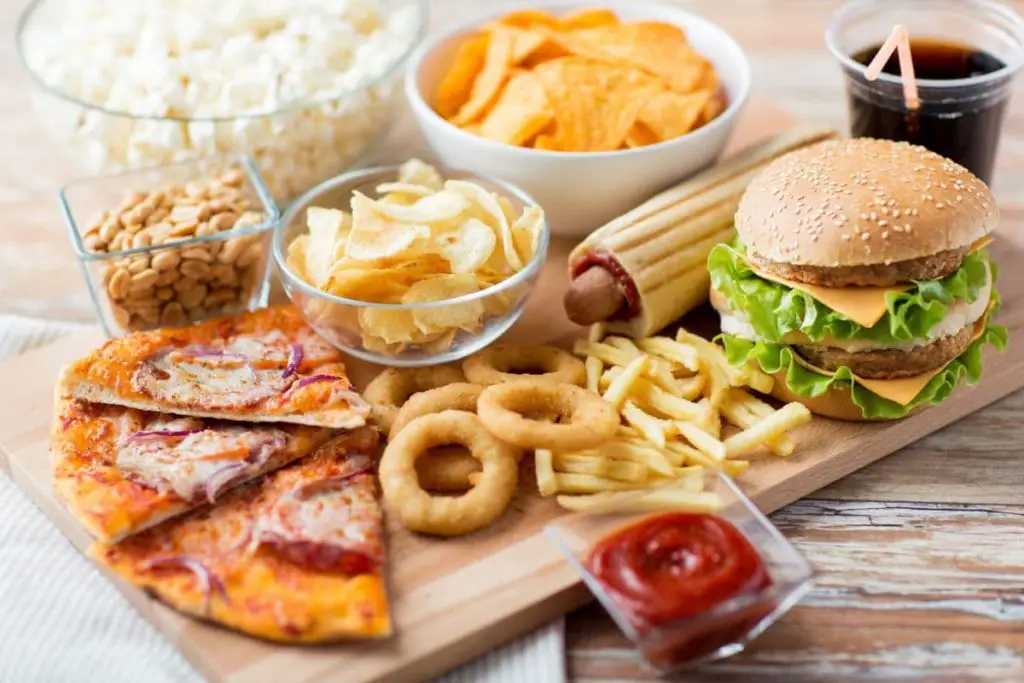Whether at a holiday party, a neighborhood barbecue, or any other occasion where good things to eat are plentiful, you’re left feeling overstuffed and wondering what to do. But now you’re probably here because you’re wondering what to do next.
You should not fast in the traditional meaning of the word. That means you should not actively avoid food for an extended time. Eating in that manner repeatedly can trigger a binging-fasting cycle of consumption which can lead to eating disorders.
Every human is different and so are their eating habits. But there are several simple tips you can follow to keep your stomach feeling healthy and keep yourself from falling victim to the grips of an eating disorder.

What Is Fasting?
Fasting is active abstinence from food for religious, ceremonial, ethical, or health reasons. Intermittent fasting can be a healthy part of an active lifestyle when introduced to a healthy diet. Extended fasts can be hazardous to your health, especially without proper fluid intake.
But the key to intermittent fasting is in the name. It’s only for a few hours at a time, and the time spent without food is supplemented by a healthy intake of foods that are diverse in micronutrients and calorically rich, along with proper hydration throughout the fast.
A short internment fast after an extensive binge eating session can give your body time to break down and digest the large food intake. This will help you feel better, but it is highly problematic if it becomes a pattern.
Should you create a continuous pattern of binge eating, fasting, and then binge eating again, you become highly susceptible to developing a binge eating disorder. This creates an unhealthy relationship with food and can also affect you psychologically.
Fasting in response to binge eating is a bit of an overreaction. Of course, after consuming a considerable amount of calories very quickly, naturally, you won’t be hungry for a while. But you should not actively avoid eating if you do feel hungry. But there is a difference between genuine hunger and craving.
What Is Binge Eating?
Binge eating is quantified as consuming more than one thousand calories in less than two hours. It is very easy to binge eat when consuming high-calorie, unhealthy foods.
Processed and fried foods often carry a lot of calories from fats. This makes the foods extremely tasty but also very calorically dense. You can quickly eat a very high amount of these foods and intake over one thousand calories without even realizing it.
Eating greasy or processed food can easily fill your stomach to the point that you feel uncomfortable. This is a classic symptom of binge eating. Binge eating often happens when we are distracted by something like our favorite tv show or sports team.

Binge eating can also be a source of comfort for those that are feeling emotionally distressed. Eating things that taste good can make you feel good, but that’s an unhealthy relationship with food.
If you feel like you’re using food as an emotional crutch to help you through hard times, I urge you to reach out to a friend, family member, or therapist. Be honest with them about how you are feeling, and let them know that you are using food as a way to cope. Seeking help isn’t a weakness. There’s great strength in numbers, and you’re never alone.
Having a healthy relationship with food is the first and the most crucial step to pulling yourself out of a cycle of binge eating and fasting.
How To Prevent an Unhealthy Eating Cycle
The best way to keep yourself from falling into this vicious cycle is to prevent binge eating in the first place. But that’s much easier said than done. An easy way to avoid passive binge eating is to snack on lower-calorie foods.
This doesn’t mean you have to switch to broccoli and carrots immediately. But switching to more natural snack foods that are lower in fat since they haven’t been fried or processed will help to lower your caloric intake.
Another benefit to consuming natural snacks instead of processed snacks and candies is that raw fruits and vegetables fill up your stomach more quickly simply due to their fiber content and natural density.
For example, one pound of broccoli will fill you up much faster than one pound of sour patch kids. The broccoli will be much more diverse in its micronutrient content as well. This is highly beneficial to your overall health as opposed to the sour patch kids that are a pound of sugar.
A diet with fiber-rich fruits and vegetables will keep you from overeating. These dense fibrous foods will occupy a large amount of space in your stomach, making you feel much more full, a lot faster, but without consuming as many calories. You’ll also feel better and probably notice a boost in energy.

Your stomach is vital to your overall health, including your mental health. This is why it’s essential to practice healthy eating habits. A cycle of binge eating followed by fasting is the same as a hamster running on a wheel.
Binge eating and then fasting are like running in place. You’re putting a lot of stress on your body without accomplishing anything. Self-discipline is crucial to breaking this cycle. We all have cravings. And they don’t always have to be ignored, but you must control them.
Conclusion
Fasting after binge eating isn’t a good idea because you can easily fall into a cycle of doing this and spiral into a full-blown eating disorder.
In general, binge eating isn’t a healthy practice if done in excess, but it’s also nothing that you should hold against yourself.
Fasting and avoiding food after excessive caloric intake is an overcorrection and a symptom of remorse for overeating. It’s okay to feel regretful and want to do better but don’t dwell on the wrongs. Focus on what you can do better in the future. Make a plan and stick to it.

